Dire-Dawa Cluster Member Universities Workshop
In collaboration with Dire Dawa University, the e-SHE program hosted the Dire Dawa cluster member universities’ Engagement workshop at Dire Dawa University. The workshop started

In collaboration with Dire Dawa University, the e-SHE program hosted the Dire Dawa cluster member universities’ Engagement workshop at Dire Dawa University. The workshop started

The e-Learning for Strengthening Higher Education (e-SHE), in partnership with Jimma University, hosted a one-day workshop at the main campus yesterday. Attended by representatives from
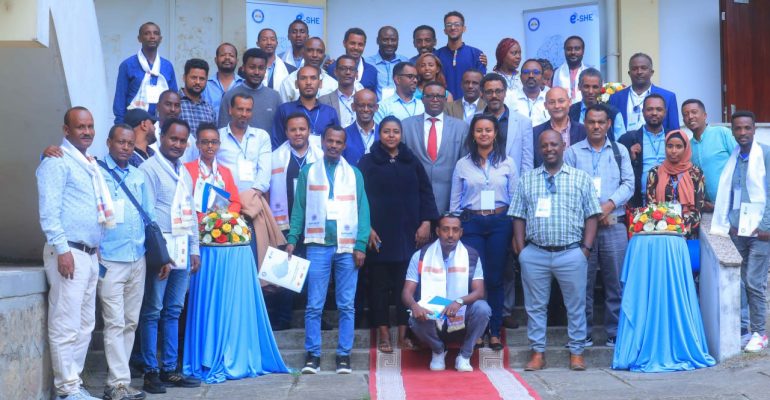
The e-Learning for Strengthening Higher Education in Ethiopia (e-SHE), in collaboration with Hawassa University, hosted a one-day workshop on march 29th, at African Union Hall on the
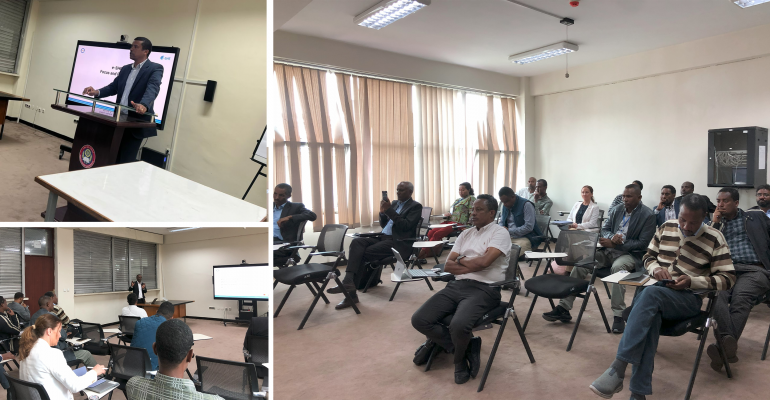
The e-Learning for Strengthening Higher Education (e-SHE) is currently hosting a one-day workshop at Addis Ababa University (AAU), igniting collaboration among ICT Directors and e-Learning
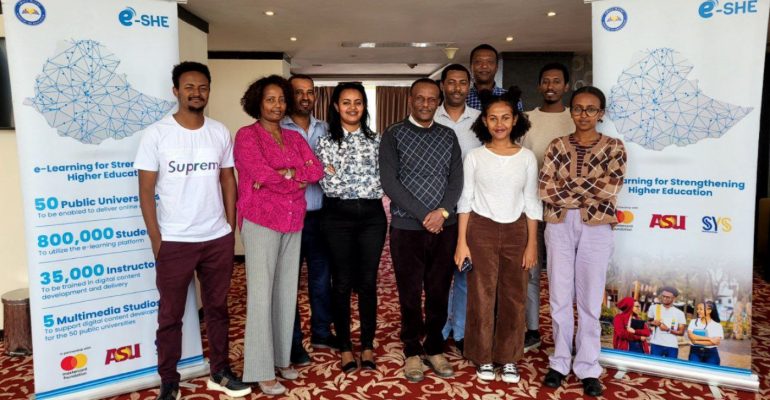
The e-Learning for Strengthening Higher Education (e-SHE) program, which is jointly implemented by the Ministry of Education, Mastercard Foundation, Arizona State University (ASU), Shayashone PLC
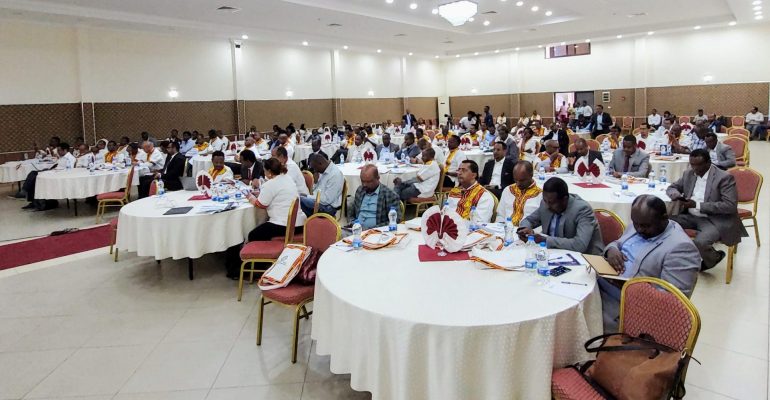
Overview The e-SHE project team organized the University Leadership Engagement Workshop event on August 25 and 26, 2023. The event consisted of a welcoming dinner,
Introduction A two-day workshop on e-learning and digital education was recently conducted in Ethiopia, bringing together educators, policymakers, and experts to explore the potential of
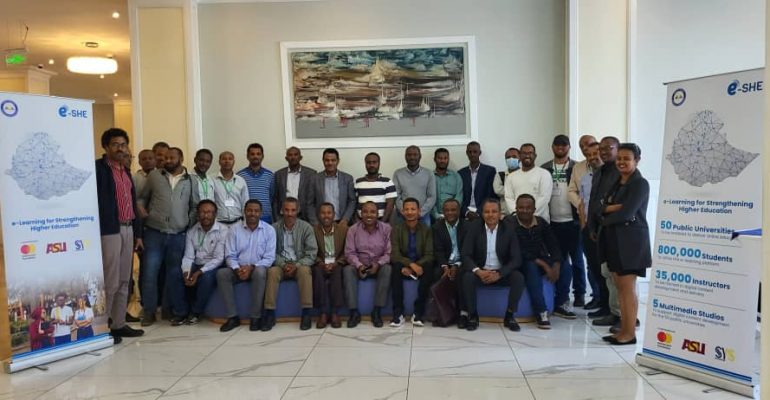
The workshop kicked off with a series of presentations from the five cluster lead universities on their individual approaches towards implementing the e-SHE initiative at